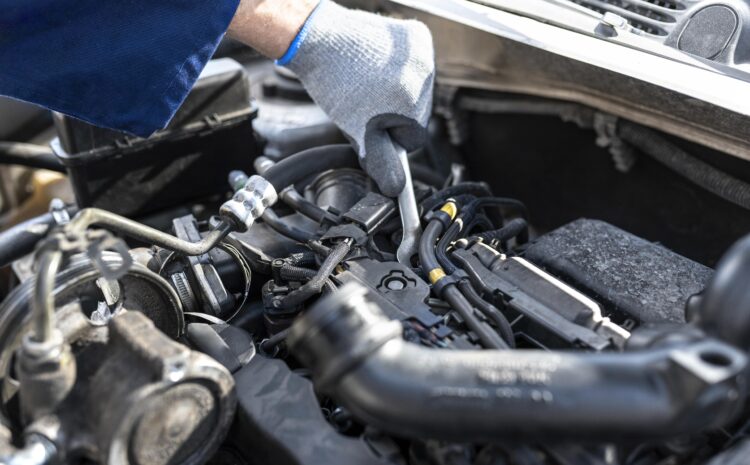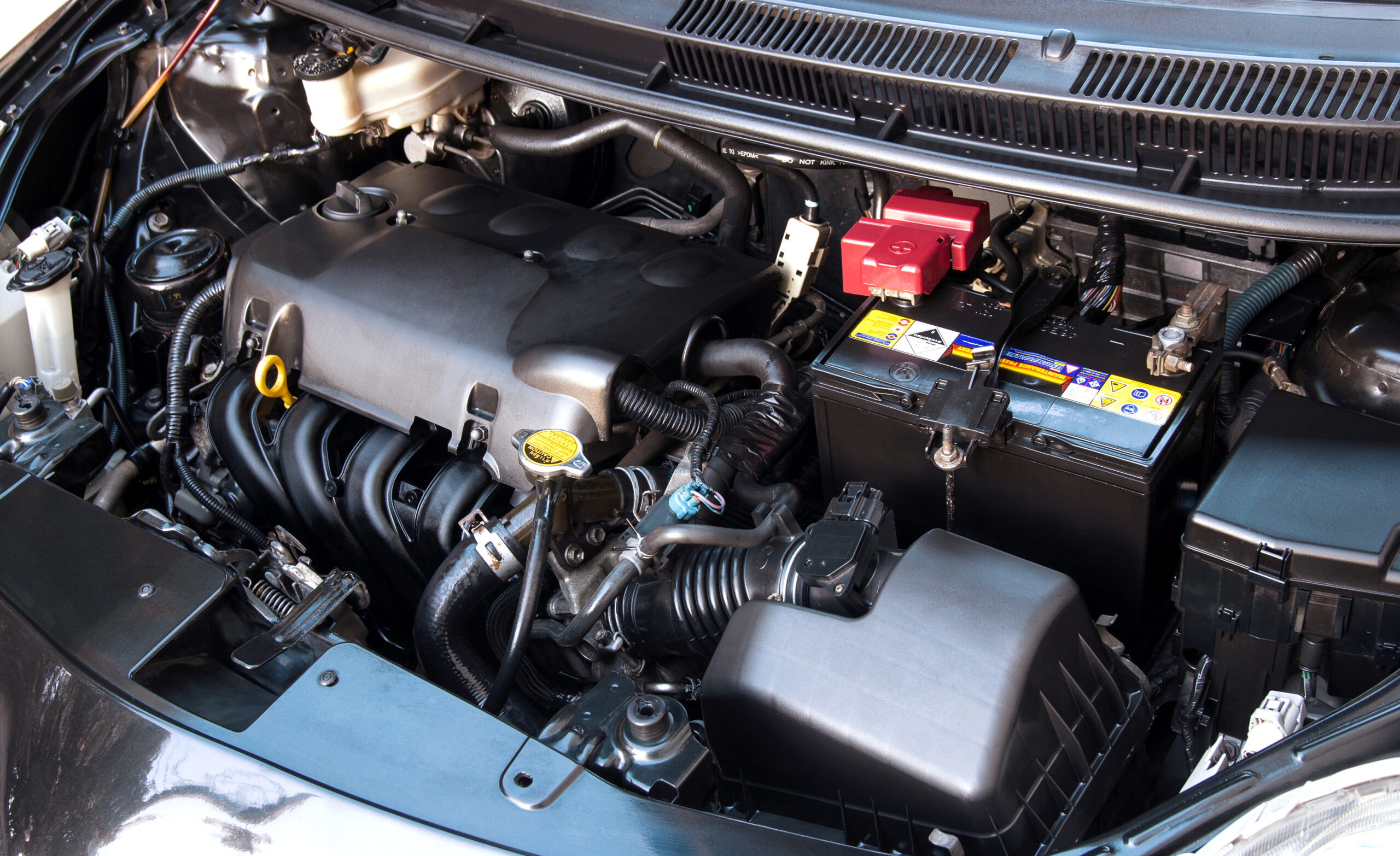
The Importance of Using High-Quality Oil for Turbocharged Engines
There’s no denying it: turbocharged engines are here to stay. From the roar of a Toyota Supra to the precision of a Honda Civic Type R, modern performance cars rely on turbochargers to squeeze more power out of smaller, more efficient engines. They deliver thrilling acceleration, better fuel economy, and that unmistakable turbo whistle we all love. But there’s something that many car owners overlook when they’re enjoying that boost — and it’s one of the simplest things you can control: the oil you put into your engine.
If you drive a turbocharged vehicle — whether it’s your daily driver or your weekend track toy — the quality of the oil you use can make the difference between a smooth, reliable ride and costly repairs down the road. At 5ive Performance, we’ve seen it all. We’ve watched engines thrive for hundreds of thousands of miles with proper care, and we’ve seen them fail early because the wrong oil was used or oil changes were neglected. So, let’s discuss why your choice of oil matters so much, especially if you’re driving a turbo.
What Makes Turbocharged Engines Different?
Before we dive into oil specifics, it helps to understand why turbos demand more from your motor oil.
A turbocharger works by using exhaust gases to spin a turbine that forces more air into the engine. More air means more fuel can be burned, which means more power. But spinning that turbine can generate temperatures well above 1,000 degrees Fahrenheit. That heat transfers into your engine oil. While a naturally aspirated engine may not push oil to its thermal limits, a turbocharged engine absolutely will.
On top of extreme heat, turbochargers spin at incredibly high speeds — sometimes up to 200,000 RPM. They rely on a steady supply of clean, high-quality oil to lubricate the turbo’s shaft and bearings. Any drop in oil quality can lead to carbon deposits, sludge, or coking (burned oil that turns to hard carbon) — and these are turbo killers.
Why Cheap Oil Won’t Cut It
All motor oils are not created equal. Budget oils may meet minimum industry specs, but that doesn’t mean they’re designed to handle the high heat and pressure inside a turbocharged engine.
Lower-grade oils can break down more quickly under high temperatures, losing their ability to lubricate and protect engine components. When oil breaks down, it leaves behind sludge and varnish that can clog narrow oil passages and stick to vital parts. In a turbocharged engine, this can starve your turbo of lubrication, overheat bearings, and cause catastrophic failure.
And here’s the real kicker: once a turbo fails due to oil-related problems, it can’t be saved by an oil change. A rebuild or replacement is often the only option, and that can cost thousands of dollars.
Synthetic Oil: Not Just a Luxury — a Necessity
For modern turbocharged engines, fully synthetic oil isn’t just a nice upgrade — it’s a requirement. Synthetic oils are engineered to withstand higher temperatures without breaking down. They maintain stable viscosity across extreme temperature ranges, so they flow quickly on cold starts and continue to protect when your engine is scorching hot.
At 5ive Performance, we don’t cut corners when it comes to oil. For our performance builds and high-output engines, we trust Liqui Moly and AMSOIL — two brands known for top-tier synthetic lubricants that protect even under racing conditions. For reliable, everyday turbocharged cars, we stick with MOBIL 1, which delivers excellent wear protection and keeps engines clean mile after mile.
What High-Quality Oil Does
So, what exactly is happening inside your engine when you pour in premium synthetic oil?
- Better Heat Resistance: Synthetic oils resist oxidation and thermal breakdown far better than conventional oils. This keeps oil passages clean and free from sludge — which is crucial when your turbo is glowing red-hot.
- Superior Lubrication: High-quality oils have stronger film strength, which means they maintain a protective layer between metal parts even under extreme pressure. This minimizes metal-to-metal contact and reduces wear on turbo bearings and other precision components.
- Faster Flow on Cold Starts: Premium synthetics flow faster when your engine is cold. Cold starts are one of the riskiest moments for your turbo, because the bearings rely on instant lubrication. High-quality oil gets there quicker.
- Cleaner Engine: Top-tier synthetic oils contain advanced detergents that keep carbon and sludge from building up. A clean engine is an efficient engine, and for turbos, that means longer life and sustained performance.
How Often Should You Change Oil in a Turbocharged Engine?
It’s tempting to stretch oil change intervals to save a few bucks, especially with modern synthetic oils that claim long drain intervals. But with a turbo, this is risky business.
Turbocharged engines work their oil harder than naturally aspirated ones. That’s why it’s smart to change your oil more frequently — even if the manufacturer says you can go 10,000 miles. Many enthusiasts stick to 3,000–5,000-mile intervals for peace of mind. At 5ive Performance, we always recommend erring on the side of caution. It’s far cheaper to change your oil than to replace a turbo.
Signs Your Turbocharged Engine Needs Attention
Your engine often lets you know when something’s wrong — if you know what to look for. Keep an eye out for these red flags:
- Excessive Oil Consumption: If you’re constantly topping off oil, your turbo seals may be failing.
- Blue Smoke from the Exhaust: Burning oil is a sign that oil is leaking into the combustion chamber or exhaust system.
- Loss of Power: If your turbo isn’t getting enough lubrication, it may not spool properly, leading to noticeable drops in performance.
- Unusual Noises: Whining, grinding, or whistling that wasn’t there before could point to turbo bearing wear.
If you notice any of these symptoms, don’t wait — bring your car to a shop that understands performance engines.
The Extra Mile: Additives and Maintenance Tips
Using premium oil is the first step. But you can do a few more things to keep your turbo healthy:
- Use OEM or better oil filters. Cheap filters can clog or fail, starving your turbo of oil.
- Allow proper warm-up and cool-down. When you push your turbo hard, give it a minute or two to idle before shutting the engine off. This prevents oil from cooking in the turbo bearings.
- Consider oil additives. Some premium additives can enhance protection, especially for high-mileage or heavily modified engines. Talk to us before using any — we can recommend what works and what’s just snake oil.
Why 5ive Performance is Houston’s Turbo Specialist

At 5ive Performance, we know what it takes to keep turbocharged engines running strong. From Toyota Supras to tuned BMWs and daily-driven Hondas, we treat every car like it’s our own. Our certified master technicians use only the best oils — Liqui Moly, AMSOIL, and MOBIL 1 — because we’ve seen what happens when you cut corners.
We’re not just here to change your oil. We’re here to help you protect your investment, get the most out of every mile, and enjoy the thrill of driving a turbocharged machine that’s healthy and reliable.
So, if you’re due for an oil change or you want to make sure your turbo is getting the protection it deserves, bring your ride to 5ive Performance. We’ll keep you boosting confidently for years to come.
Ready to give your turbo the care it needs? Schedule your oil service with 5ive Performance today and experience the difference that high-quality oil and expert service make. Let’s keep your car performing at its best — mile after mile, boost after boost.
